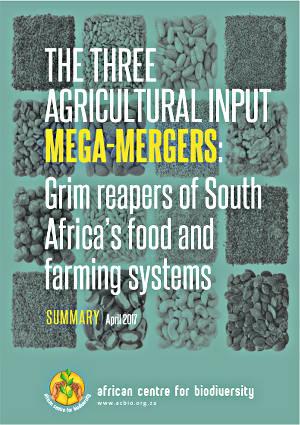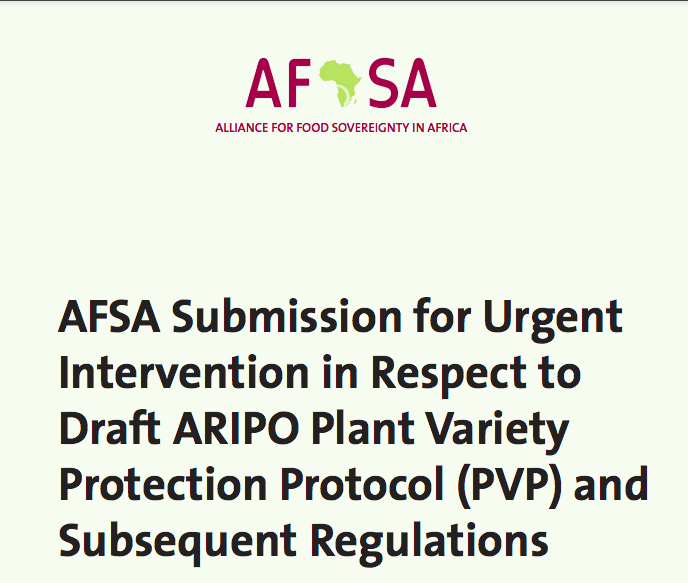Latest Resources

4 November 2024
Les subventions néfastes, la dette et le financement de la biodiversité en Afrique
Des pistes pour une transition juste en préparation de la COP 16 et au-delà (Click here to read in English.) La cible 18 du cadre mondial pour la biodiversité de la Convention sur la diversité biologique préconise l’élimination, la suppression progressive ou la réforme des subventions néfastes pour l’environnement et la société, ainsi que l’augmentation […]

18 October 2024
Harmful subsidies, debt and financing for biodiversity in Africa
Just transition pathways for CBD’s COP 16 and beyond (Cliquez ici pour lire en français.) Target 18 of the Convention for Biological Diversity’s Global Biodiversity Framework calls for the elimination, phasing out, or reform of environmentally and socially harmful subsidies, and a scaling up of positive incentives for the conservation and sustainable use of biodiversity, […]

19 September 2023
Financialisation, dematerialisation, digitalisation & distancing of Africa’s agriculture
What future for small-scale farmers and their food and seed systems? Following on from part one, The rise of digital agriculture and dispossession in Africa: implications for smallholder farmers, part two looks at how private-sector interests and motives are driving the financialisation of Africa’s food and farming systems. Financialisation is the focus on generation of […]

30 August 2023
The rise of digital agriculture and dispossession in Africa: implications for smallholder farmers
In part one in a series of two, consisting of a briefing paper and linked fact sheet, we explore the current status of digital agriculture in Africa and the potential implications its deployment has for smallholder farmers on the continent. We outline three primary areas of concern related to potential inequitable benefits and influence accrued from its deployment; […]

28 August 2023
Seed harmonisation in Eastern and Southern Africa
Failures, corporate occupation, and the rise of digitalised seed trade: dire implications for farmer managed seed and food systems in Africa Regional seed policy harmonisation processes on seed and plant variety protection (PVP) legislation have been underway for the past 15 years on the African continent. These have taken place under the auspices of various […]

8 October 2019
Crunch Time for the Seed Treaty
A review of some outstanding issues in the negotiation Will the effort to fix ITPGRFA’s broken benefit sharing system measure up to expectations? (Veuillez cliquer ici pour le français) (Por favor, haga clic aquí para el español) This paper reviews the key outstanding issues that are expected to be discussed by the ITPGRFA Governing Body, […]

11 April 2017
Mega-mergers: 3 giant corporations controlling South Africa’s food and farming systems
This briefing deals with the three mega mergers taking place in the agriculture sector as Dow Chemical and DuPont are set to merge, China National Chemical Corporation (ChemChina) is to acquire Syngenta and Bayer is to acquire Monsanto. The proposed Bayer-Monsanto merger will give control of almost 30% of the world’s commercial seed market and […]

28 July 2016
ACB Preliminary comments on Draft Regulations Implementing the Arusha Protocol for the Protection...
Draft Regulations for the implementation of the African Regional Intellectual Property Organisation’s (ARIPO’s) Arusha Protocol for the Protection of New Plant Varieties (Arusha Protocol), were considered for adoption in June 2016. The proposed regulations included provisions designed to intimidate and force seed processors, seed suppliers, government certification officers and even farmers’ organisations to police and […]

11 June 2014
AFSA Makes Small Gains for Farmers’ Rights in Draft SADC PVP Protocol
AFSA members participated at a SADC Regional Workshop that took place 13-14 March 2014, in Johannesburg, South Africa. The aim of the workshop was to review the draft SADC PVP Protocol. After marathon, highly contentious and difficult discussions, AFSA members were able to persuade member states to amend key provisions in the draft SADC PVP […]

9 March 2011
How US sorghum seed distributions undermine the FAO Plant Treaty’s Multilateral System
New data from ICRISAT and the US Department of Agriculture and a comparison of genebank records indicates that half of more of ICRISAT’s sorghum genebank collection is also being distributed outside of the Multilateral System. This yawning gap creates an economic incentive for the Multilateral System and its benefit-sharing requirements to be avoided. USDA’s sorghum […]
